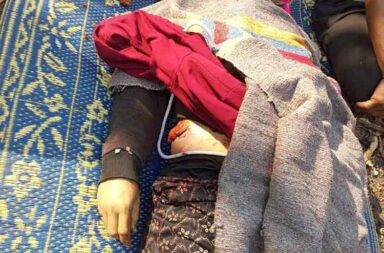Electoral Process Not Inclusive of People Living in EAO Territory, Report Says
By NETWORK MEDIA GROUP (NMG)
Monday, October 18, 2020
People living in areas controlled by ethnic armed organizations (EAOs) are having difficulty participating in Burma’s electoral process, the Human Rights Foundation of Monland (HURFOM) has reported.
In a recent report, “No Marginalization: Free and Fair Election,” HURFOM highlighted the ways in which people in EAO areas have been excluded thus far from Burma’s general election, scheduled for November 8.
“Most people who are living in ethnic armed organizations’ controlled areas do not have the experience of voting. Voter education is unavailable for people in these areas,” HURFOM coordinator Nai Banyar Ekvan told NMG. “Another thing is that they are living in ethnic armed organizations’ areas but they have to cast their vote in the government-controlled area. Their polling station is too far away. They have to travel by land and waterway, so people do not want to go and cast their votes in the polling station. These are the kinds of difficulties they have.”
The report outlined how people in EAO territory were often excluded from the eligible voter list, and had little to no access to information about the election.
In southern Burma, around 180,000 people were affected by these circumstances, 40,000 of whom had never voted before, HURFOM said.
Some 2,000 people living in nine villages in the Ye Chaung Pyar area, controlled by the New Mon State Party (NMSP), are included on the voter list for the first time this year. However, according to Min Aung Htoo—a Mon Unity Party electoral candidate for Ye Township’s Constituency 2—the polling stations assigned to these voters are so far that the villagers are unsure whether they will be able to vote.
“The polling stations are too far from the Ye Chaung Pyar area. The roads are really bad in that area. I don’t think these people will come to cast their vote in the polling stations, because they are located 20 to 30 miles away from their area. It’s too far for them,” Aung Htoo told NMG.
Mon civil society organizations have been delivering voter education to people in the NMSP’s area and will help them cast their votes on election day.
“We explained to them how to cast their votes in the polling station. I don’t think it’s enough. They still need more voter education training,” voter educator Nai Lum said.
HURFOM said that in Burma’s previous election, some people from EAO-controlled areas had voted but many of their votes were thrown out because they were cast incorrectly, due to a lack of voter education.
The organization recommended that a concrete policy be adopted between EAOs, the government and the Union Election Commission to ensure that people in these territories are able to exercise their voting rights and that the election takes place in an inclusive environment.


